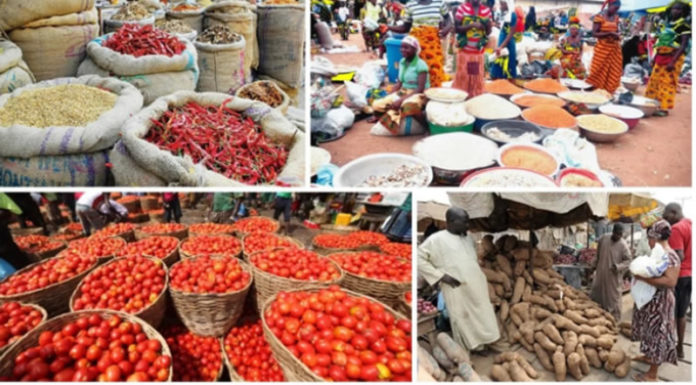The cost of transportation was a major factor pushing inflation above 20 percent in 2024. According to the Ghana Statistical Service, this contributed to rising food inflation due to the high cost of transporting foodstuffs from the farmgate to consumers.
Speaking to journalists at a workshop reviewing consumer price index variables, Data Scientist at the Ghana Statistical Service, Simon Tichutab, called for a multi-stakeholder approach to address the high cost of transporting foodstuffs to the markets.
For example, transporting tubers such as yam and cassava from the middle belt to markets in the south led to astronomical price increases. The cost, he lamented, is passed on to consumers, which drives food inflation.
“If you look at the items, fuel, bus, and trotro fares ranked about 70 times in the top fifteen of the 72 data points that we have, and a lot of food items like unprocessed food, including yam, fresh tomatoes, and other farm produce,” he said.
Describing the situation as a major hurdle that must be addressed, Mr. Tichutab advocated for a policy shift to resolve the issue.
“It is a multifaceted challenge, and if you ask my view, I think if we really want to tackle inflation, we have to look at our food basket and its inflation rates,” he stated.
He pointed out that the trend has continued for years, indicating a pattern that affects food prices.
“Every year, bus and trotro fares are ranked higher than necessary, which impacts prices. We need to address the gap between the market and farmgate, and through stakeholder conversation, a broader approach can be developed.”
The Ghana Statistical Service made the disclosure at a stakeholder engagement to review the 2024 trends in consumer price indices and items driving inflation in Ghana.
The objective of the engagement was to foster collaborative dialogue among key stakeholders, including government officials and the media, on consumer price inflation. According to the Ghana Statistical Service, the engagement is important for developing a better approach to calculating the inflation rate.
The meeting also highlighted the importance of understanding the complex factors contributing to consumer price inflation. It generated discussion on the development of comprehensive strategies to address these issues, focusing on key consumable items that have influenced the upward trends in inflation in Ghana.
The items consistently recording the highest price changes constitute almost a third of average household expenditure.
READ ALSO:


